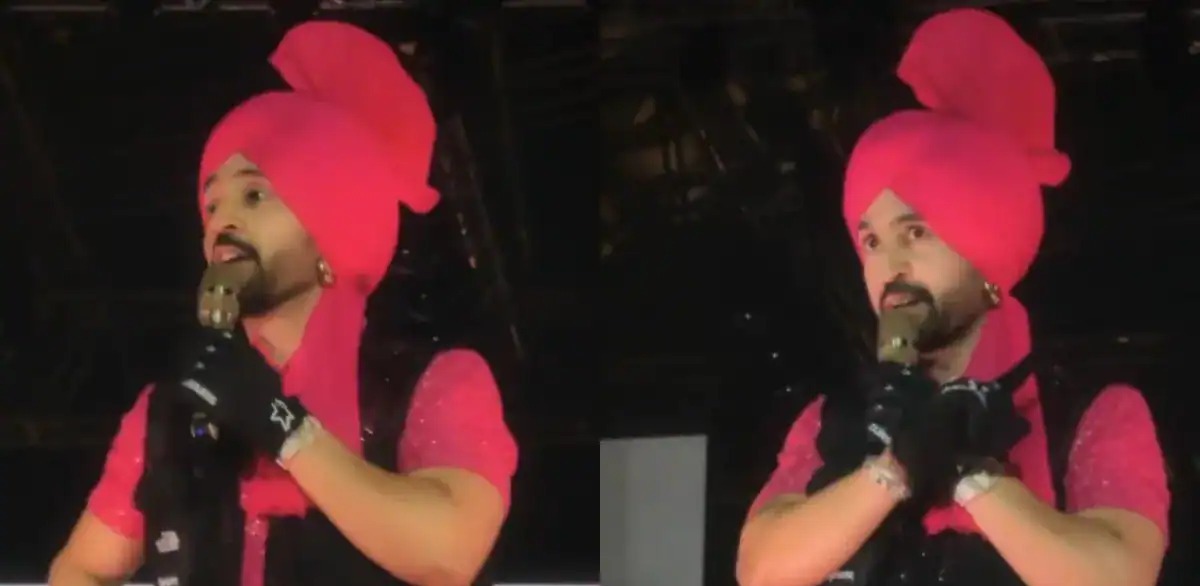In a world where music often reflects the lifestyle, struggles, and emotions of its creators, Indian singer and actor Diljit Dosanjh has established himself as one of the most influential voices in the Punjabi music industry. Known for his unique blend of traditional and contemporary music, Diljit’s songs have captivated audiences not just in India but globally. However, his recent comments about the songs he sings and their portrayal of alcohol consumption have sparked a wide conversation about the impact of music on culture, responsibility, and the artist’s role in shaping social norms. Diljit, who has earned immense popularity for his chart-topping hits such as Laembadgini, Do You Know, G.O.A.T., and Born to Shine, recently made headlines when he addressed a longstanding issue in the music industry: the glorification of alcohol in Punjabi songs. With the rise of ‘party anthems’ and tracks celebrating the lifestyle of excess, including heavy drinking and partying, alcohol has become a recurring theme in many songs across various genres, including Punjabi music. While these songs often enjoy immense popularity, they have also drawn criticism for promoting unhealthy and irresponsible behavior, especially among younger listeners. Diljit, however, broke his silence on the issue and set a bold condition regarding his own approach to songs about alcohol. In a candid conversation during a public appearance, the G.O.A.T. hitmaker remarked, “I will stop singing songs about alcohol if someone can prove to me that it has a positive impact on people’s lives.” The statement instantly garnered attention, with fans and critics alike weighing in on the issue. Diljit’s condition reflects a growing concern among artists, especially in genres that appeal to younger generations, about the influence that their lyrics can have on societal attitudes and behaviors. Over the past decade, Punjabi music has seen an explosion in global popularity, largely due to the increasing influence of digital streaming platforms, social media, and the international diaspora of Punjabis. With a diverse and expansive audience, Punjabi music has become a major force in the entertainment industry, influencing music trends across India and abroad. However, with this success has come a certain amount of criticism, especially concerning the lyrical content of some of the more mainstream songs. Alcohol, partying, and an extravagant lifestyle have become recurring themes in many of these hits. Songs that celebrate drinking as a form of escapism or rebellion often feature lyrics that glorify the act of excessive drinking, sometimes promoting it as a symbol of social success or youthful defiance. While some view this as harmless fun, others argue that it reflects a dangerous culture, especially when it is directed at impressionable young listeners. In this context, Diljit Dosanjh’s comments are significant because, as one of the most influential figures in Punjabi music, his stance could have far-reaching implications. Known for his musical versatility, which includes everything from traditional bhangra beats to contemporary pop, Diljit has the ability to shape trends and redefine norms. His bold statement about alcohol in music, however, underscores a critical conversation about the responsibility of artists and the impact of their work on public behavior. Diljit’s influence on Punjabi music and culture is undeniable. With a career spanning over a decade, he has earned a reputation not only as a talented musician but also as an actor and entrepreneur. His breakout success in the early 2010s, with hits like Patiala Peg and Sikhra, helped him establish a massive fanbase in India and around the world. Since then, he has continued to diversify his career, branching out into Bollywood films and even international projects. Known for his charming personality and humble demeanor, Diljit has also garnered a reputation as someone who uses his platform to address societal issues.
The post “Will Stop Singing Songs On Alcohol If…”: Diljit Dosanjh Sets A Condition first appeared on InfluencersPro.

